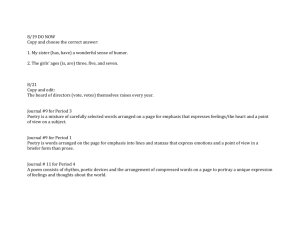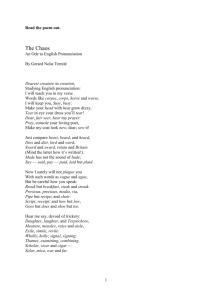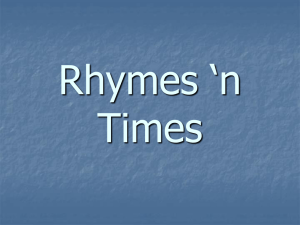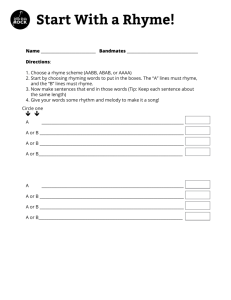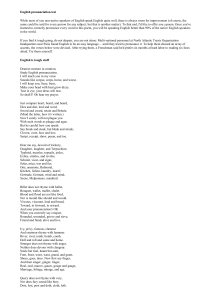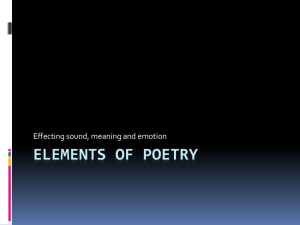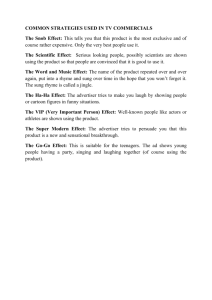Do better lyrics make a hit? Complexity of rhymes in music lyrics.
advertisement
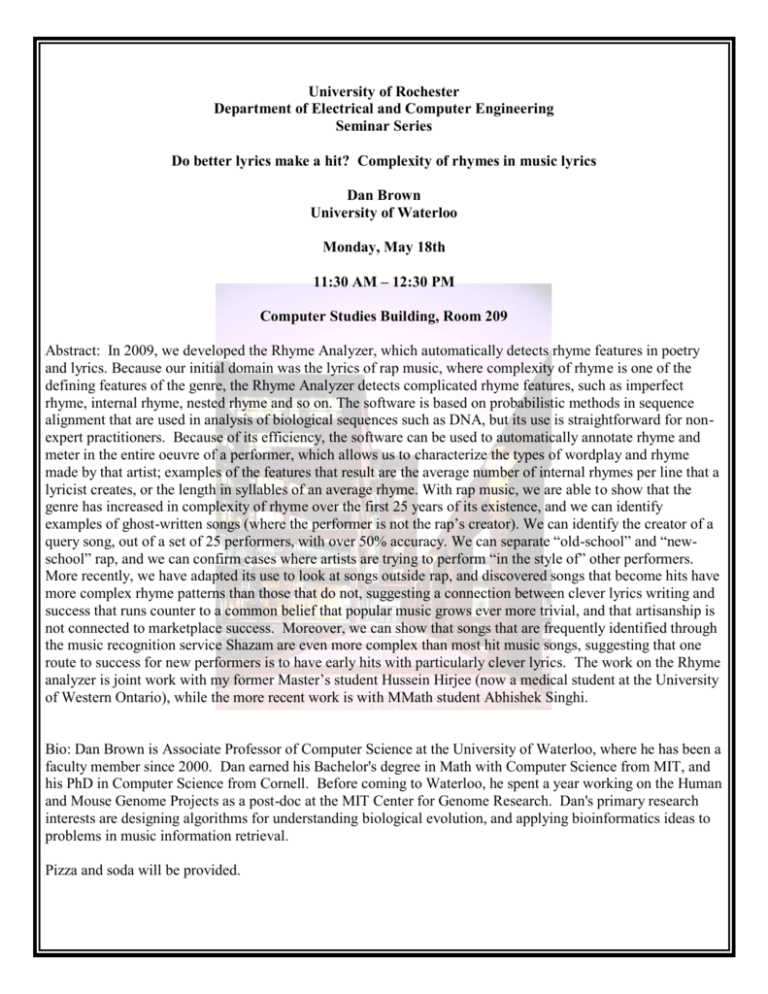
University of Rochester Department of Electrical and Computer Engineering Seminar Series Do better lyrics make a hit? Complexity of rhymes in music lyrics Dan Brown University of Waterloo Monday, May 18th 11:30 AM – 12:30 PM Computer Studies Building, Room 209 Abstract: In 2009, we developed the Rhyme Analyzer, which automatically detects rhyme features in poetry and lyrics. Because our initial domain was the lyrics of rap music, where complexity of rhyme is one of the defining features of the genre, the Rhyme Analyzer detects complicated rhyme features, such as imperfect rhyme, internal rhyme, nested rhyme and so on. The software is based on probabilistic methods in sequence alignment that are used in analysis of biological sequences such as DNA, but its use is straightforward for nonexpert practitioners. Because of its efficiency, the software can be used to automatically annotate rhyme and meter in the entire oeuvre of a performer, which allows us to characterize the types of wordplay and rhyme made by that artist; examples of the features that result are the average number of internal rhymes per line that a lyricist creates, or the length in syllables of an average rhyme. With rap music, we are able to show that the genre has increased in complexity of rhyme over the first 25 years of its existence, and we can identify examples of ghost-written songs (where the performer is not the rap’s creator). We can identify the creator of a query song, out of a set of 25 performers, with over 50% accuracy. We can separate “old-school” and “newschool” rap, and we can confirm cases where artists are trying to perform “in the style of” other performers. More recently, we have adapted its use to look at songs outside rap, and discovered songs that become hits have more complex rhyme patterns than those that do not, suggesting a connection between clever lyrics writing and success that runs counter to a common belief that popular music grows ever more trivial, and that artisanship is not connected to marketplace success. Moreover, we can show that songs that are frequently identified through the music recognition service Shazam are even more complex than most hit music songs, suggesting that one route to success for new performers is to have early hits with particularly clever lyrics. The work on the Rhyme analyzer is joint work with my former Master’s student Hussein Hirjee (now a medical student at the University of Western Ontario), while the more recent work is with MMath student Abhishek Singhi. Bio: Dan Brown is Associate Professor of Computer Science at the University of Waterloo, where he has been a faculty member since 2000. Dan earned his Bachelor's degree in Math with Computer Science from MIT, and his PhD in Computer Science from Cornell. Before coming to Waterloo, he spent a year working on the Human and Mouse Genome Projects as a post-doc at the MIT Center for Genome Research. Dan's primary research interests are designing algorithms for understanding biological evolution, and applying bioinformatics ideas to problems in music information retrieval. Pizza and soda will be provided.
